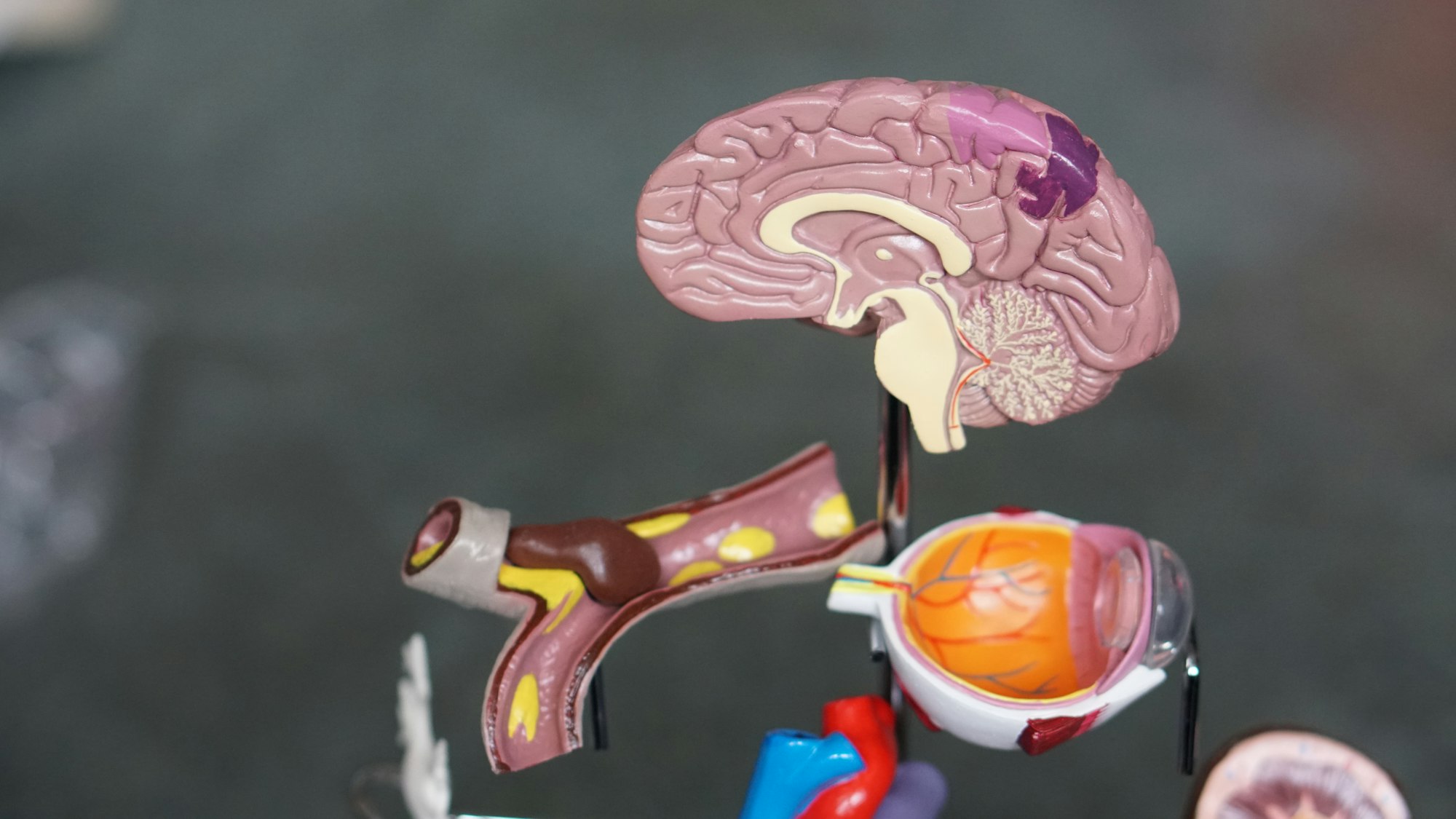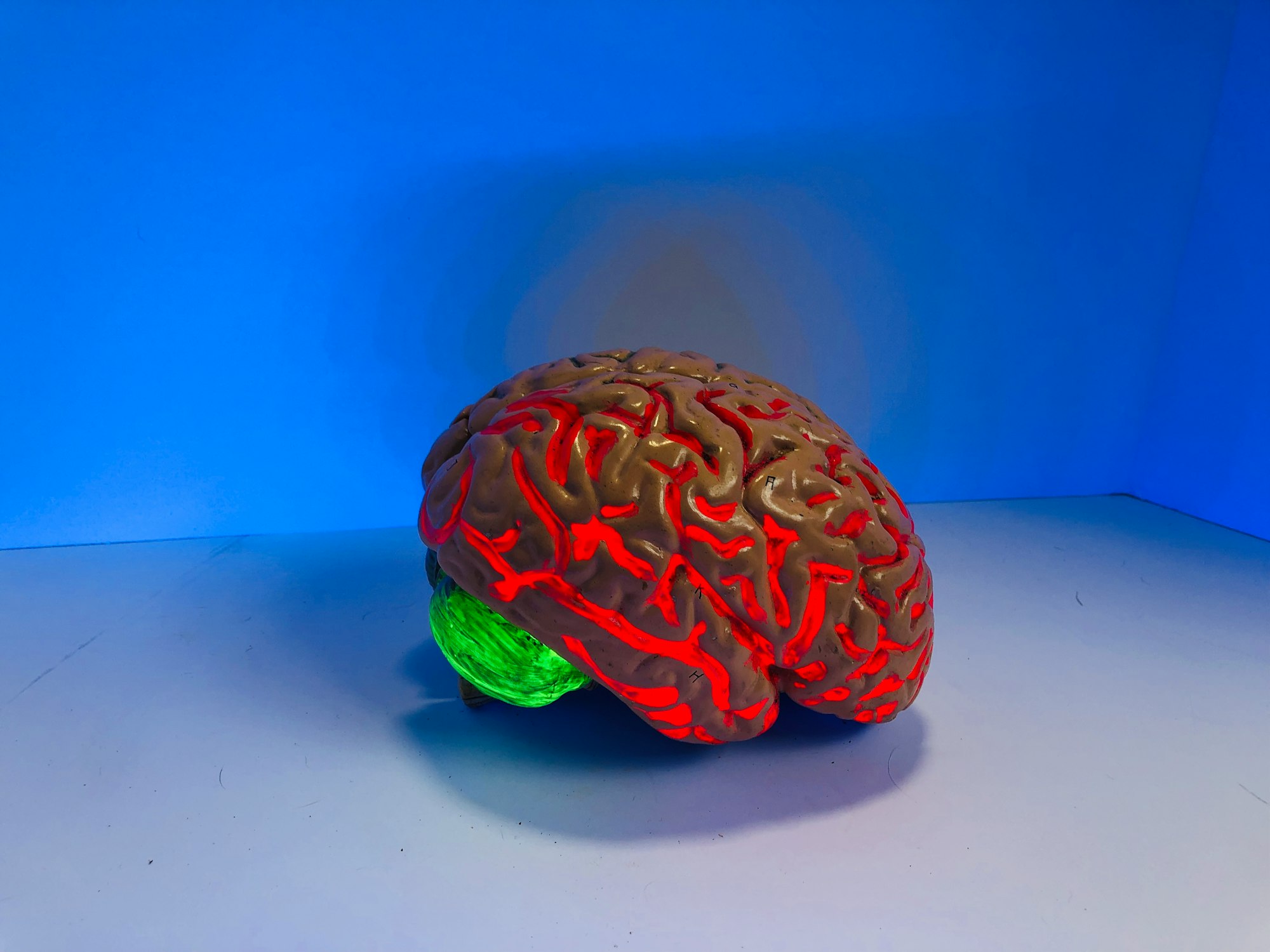What's Dementia: Symptoms, Types, Causes, Treatment & Risk Factors
Understanding dementia is key to recognizing its types, causes & risk factors. Symptoms of dementia include memory loss, cognitive decline and behavioral changes.

Did you know that dementia affects millions of people worldwide, causing a decline in mental function and impacting daily life? In this blog post, we’ll dive into the world of dementia, exploring its symptoms, types, causes, and treatments. We’ll also discuss risk factors, prevention strategies, and how to recognize and diagnose this complex condition. Join us on this fascinating journey through the intricacies of “what is dementia” as we shed light on a topic that touches the lives of so many.
Short Summary
- Understanding dementia is key to recognizing its types, causes & risk factors.
- Symptoms of dementia include memory loss, cognitive decline and behavioral changes.
- Treatment options range from medications to non-pharmacological interventions like exercise & social engagement for improved quality of life.
Understanding Dementia

Dementia is often misunderstood, but it’s crucial to recognize that it’s not a single disease. Rather, it’s a decline in mental function affecting memory, thinking, and social abilities, caused by various underlying diseases such as Alzheimer’s, Lewy body dementia, frontotemporal dementia, and vascular dementia. As dementia progresses, it can have a significant impact on a person’s daily life, making even the simplest tasks challenging.
Researchers have recently characterized rare genetic variants that can increase the risk of developing dementia. However, certain modifiable lifestyle factors can also play a role in the development of this condition. By understanding the different types of dementia, their causes, and risk factors, we can better identify potential prevention strategies and provide the appropriate care for those affected.
Causes of Dementia
The root cause of dementia is damage or loss of nerve cells and their connections in the brain, resulting from various underlying disease processes. Alzheimer’s disease is the most frequent cause, followed by vascular dementia, which is caused by a lack of blood flow to the brain. Other possible causes include Lewy body dementia, frontotemporal dementia, and mixed dementia, each with distinct underlying mechanisms.
It’s important to note that some medical conditions can cause dementia-like symptoms, such as tumors, vitamin deficiencies, or issues with the thyroid, kidney, or liver. In such cases, addressing the root cause may alleviate or even reverse the symptoms, highlighting the importance of an accurate diagnosis.
Types of Dementia
Dementia comes in several forms, each with its own set of symptoms and causes. Alzheimer’s disease is the most common, characterized by memory loss, difficulty with problem-solving, slowed thinking, and loss of focus and organization. Vascular dementia, on the other hand, exhibits difficulties with problem-solving, slower thinking, and a lack of focus and organization, with memory loss being less apparent than in Alzheimer’s disease.
Lewy body dementia is caused by the accumulation of abnormal proteins in the brain, leading to memory loss, trouble with problem-solving, slowed thinking, and difficulty with focus and organization. Frontotemporal dementia, caused by the buildup of abnormal proteins in the brain, shares similar symptoms, with issues in problem-solving, slowing of thinking, and difficulty with focus and organization being more noticeable than memory loss.
Understanding the distinctions between these types of dementia is essential for accurate diagnosis and appropriate care.
Recognizing Dementia Symptoms

Recognizing the symptoms of dementia is crucial for early diagnosis and intervention. Symptoms vary depending on the type of dementia and the area of the brain affected, but they often include memory loss, cognitive decline, and behavioral changes.
As dementia progresses, these symptoms can become more severe, significantly impacting a person’s ability to carry out daily activities, maintain their independence, and potentially develop dementia.
Memory Loss
Memory loss is one of the most common symptoms of dementia, affecting both recent and remote memories. However, it’s important to differentiate between memory loss caused by dementia and age-associated memory impairment, which is a natural part of the aging process without any underlying medical conditions.
In the early stages of dementia, memory loss may be subtle, with individuals experiencing difficulties remembering recent events, conversations, or the location of objects. As the condition progresses, memory loss becomes more severe, affecting a person’s ability to recognize familiar people and places, recall past events, and even remember essential information about themselves, such as their name and address.
Cognitive Decline
Dementia can cause a range of cognitive difficulties that interfere with a person’s daily life. These may include challenges in thinking, problem-solving, decision-making, and abstract reasoning. For example, someone with dementia may struggle to follow a sequence of steps, solve simple math problems, or make sense of complex instructions.
As dementia progresses, cognitive decline becomes more pronounced, often affecting a person’s ability to perform basic tasks, such as dressing, bathing, and using the toilet. This decline in cognitive function can significantly impact a person’s independence and quality of life, highlighting the importance of early diagnosis and intervention to slow the progression of the disease.
Behavioral Changes
Individuals with dementia may experience a range of behavioral changes, including personality shifts, mood swings, and agitation. These changes can be distressing for both the person with dementia and their caregivers, as they can lead to difficulties in communication, social interactions, and the ability to manage daily tasks.
Behavioral changes in dementia can manifest in various ways, such as aggression, agitation, paranoia, restlessness, pacing, shredding paper or tissues, yelling, delusions, hallucinations, anxiety, depression, apathy, disinhibition, and sleep or appetite changes.
Understanding and addressing these behavioral changes is essential for providing appropriate care and support for individuals with dementia and their families.
Risk Factors and Prevention

While some risk factors for dementia, such as age, family history, and genetics, cannot be changed, others can be addressed to potentially reduce the risk of developing the condition. Leading a healthy lifestyle may help lower the chances of developing certain types of dementia, as it can contribute to better overall health, including improved cardiovascular and brain health.
Exercising regularly, eating a balanced diet, avoiding smoking, and limiting alcohol consumption are important.
Controllable Risk Factors
There are several controllable risk factors for dementia, including high blood pressure, not meeting the aerobic physical activity guideline, obesity, diabetes, smoking, air pollution, depression, social isolation, physical inactivity, and normal pressure hydrocephalus. Proper management of these factors can help reduce the risk of developing dementia and improve overall health.
For example, maintaining a healthy weight, managing cardiovascular risk factors such as high blood pressure and high cholesterol, and avoiding certain medications like sleep aids and sedatives can all help lower the risk of dementia. Additionally, engaging in regular physical activity, consuming a balanced diet rich in fruits and vegetables, and staying socially connected and mentally stimulated can further contribute to a reduced risk of dementia.
Uncontrollable Risk Factors
Despite our best efforts, some risk factors for dementia are simply beyond our control. Age is the most significant risk factor, with dementia becoming more likely in people over the age of 65 and the risk increasing with each passing year. Genetics and family history also play a role in the development of dementia, with certain genetic mutations increasing the likelihood of specific types of dementia.
In addition to age and genetics, other uncontrollable risk factors for dementia include heart disease, diabetes, stroke, high blood pressure, high cholesterol, and Down syndrome. While we cannot change these factors, being aware of them and maintaining a healthy lifestyle can still help reduce the overall risk of developing dementia.
Diagnosing Dementia
Diagnosing dementia is a complex process involving a thorough evaluation of a person’s medical history, physical exams, brain scans, blood tests, genetic tests, and neurological tests. Accurate diagnosis is crucial, as it enables appropriate care and treatment to be provided once dementia is diagnosed, helping to manage symptoms and slow the progression of the disease, including neurological disorders.
Early diagnosis is important, as it can help identify the type of dementia and the best course of action.
Blood Tests to Detect Dementia
Blood tests play a vital role in the diagnostic process for dementia, as they can help identify potential underlying conditions that could be causing dementia-like symptoms. While blood tests alone cannot diagnose dementia, they can provide valuable information when used in conjunction with other diagnostic tests and evaluations.
For example, blood tests can help rule out other conditions such as thyroid problems or vitamin deficiencies.
Who Can Diagnose Dementia
Primary care physicians, neurologists, and other specialists are all able to diagnose dementia, and some medical school hospitals may even have dedicated dementia clinics. A primary care doctor can perform an initial assessment, but they may recommend seeing a specialist, such as a neurologist, for a more detailed evaluation to confirm the diagnosis and determine the specific type of dementia.
In addition to primary care doctors and neurologists, other specialists like geriatricians, who specialize in the care of older adults and dementia, can also diagnose dementia. These professionals possess the necessary expertise to accurately diagnose dementia and provide appropriate care and support for individuals and their families.
Challenges in Diagnosis

Diagnosing dementia can be challenging due to several factors, including similarities between various types of dementia, the absence of the right assessment tools, and people being hesitant to seek help or being concerned about the stigma associated with dementia. Additionally, symptoms of dementia can overlap with those of other illnesses, further complicating the diagnostic process.
To overcome these challenges, it’s crucial to conduct a comprehensive evaluation using a combination of tests and assessments, including cognitive tests, physical exams, and laboratory tests. By doing so, healthcare professionals can ensure an accurate diagnosis of dementia and provide the appropriate care and support to those affected.
Treatment Options for Dementia
While there is no cure for most types of dementia, various treatments can help manage symptoms and slow cognitive decline. These treatments can include medications to address the progression of the disease, as well as non-pharmacological interventions that focus on improving the quality of life for those affected by dementia.
These interventions can include activities such as cognitive stimulation, physical exercise, and social engagement. They are.
Medications
Several medications are available to help manage dementia symptoms and slow the progression of the disease. Cholinesterase inhibitors, such as donepezil, rivastigmine, and galantamine, work by regulating the chemicals in the brain that facilitate communication between brain cells, essential for proper brain performance.
Memantine, an NMDA receptor antagonist, acts on a different chemical messenger and helps keep nerve cells functioning longer within the brain and nervous system. Aducanumab, a recently approved medication, targets amyloid proteins that accumulate and form plaques in the brains of people with Alzheimer’s disease.
Although these medications can help manage symptoms and slow down cognitive decline, it’s essential to work closely with a healthcare professional to determine the most appropriate treatment plan based on the specific type of dementia and individual needs.
Non-pharmacological Treatments

In addition to medications, non-pharmacological treatments can also play a vital role in improving the quality of life for people with dementia. These treatments may include cognitive stimulation therapy, physical exercise, and social engagement, which can provide a sense of purpose, engagement, and reduce anxiety and depression.
Other non-drug treatments, such as reminiscence therapy, reality orientation, validation therapy, memory and orientation exercises, art therapy, aromatherapy, music therapy, contact with animals, sensory practices, and cognitive training, can also be beneficial for individuals with dementia, enhancing communication, cognitive functioning, and reducing agitation.
It’s crucial to work with a healthcare professional to determine which non-pharmacological treatments are most appropriate and effective for each individual’s unique needs and circumstances.
Dementia Complications and Prognosis
Dementia can lead to various complications, affecting multiple aspects of a person’s life, including their physical health, daily functioning, and life expectancy. Understanding the potential complications and prognosis of dementia is essential for providing appropriate care and support to those affected by the condition and their families.
The physical health of those with dementia can be affected in a number of ways. Common physical characteristics.
Physical Health Complications
Dementia can result in a variety of physical health complications, including poor nutrition, pneumonia, difficulty with self-care tasks, safety concerns, muscle weakness, weight loss, changes in appetite and sleeping habits, and bladder and bowel incontinence. These complications can have a significant impact on a person’s overall health and well-being, making it increasingly challenging to manage daily activities and maintain independence.
Moreover, individuals with dementia may be at an increased risk of other illnesses due to their declining physical health and the challenges they face in managing their daily activities. It’s essential to work closely with healthcare professionals to address these physical health complications and provide the appropriate care and support for those affected by dementia.
Life Expectancy and Stages

Life expectancy with dementia varies depending on the type of dementia and the individual’s health profile. On average, people with Alzheimer’s disease live for 8-10 years after diagnosis, though some may live up to 20 years. Vascular dementia typically has a shorter life expectancy of around 5 years.
As dementia progresses, the severity of symptoms increases, and the level of care required may change accordingly. Stages of dementia can be defined by the severity of symptoms and the level of care required, ranging from mild cognitive impairment to severe dementia, where individuals may require full-time care and assistance with basic daily activities.
Understanding the stages of dementia is crucial for managing the condition effectively, providing appropriate care and support, and planning for the future.
Summary
Throughout this blog post, we’ve explored the complex world of dementia, delving into its symptoms, types, causes, and treatments. We’ve also discussed risk factors, prevention strategies, and diagnostic methods. Although dementia remains a challenging condition to manage, understanding the intricacies of this disorder can empower individuals and their families to make informed decisions about care and support. By working closely with healthcare professionals and implementing appropriate interventions, we can help improve the quality of life for those affected by dementia and their loved ones.
Frequently Asked Questions
What does dementia do to a person?
Dementia is a syndrome causing an ongoing decline in brain functioning, resulting in symptoms such as memory loss, difficulty with thinking and communication, personality changes, lack of interest and fearfulness, and impaired ability to remember, think and make decisions.
These symptoms can have a significant impact on a person’s life, making it difficult to carry out everyday activities. It can also affect relationships with family and friends, as well as the ability to work and take part in social activities.
How dementia is caused?
Dementia is caused by damage to or changes in the brain, such as abnormal buildups of proteins known as amyloid plaques and tau tangles. Common causes include Alzheimer’s disease and frontotemporal dementia, a rare form of dementia that occurs in people younger than 60.
What are the 7 stages of dementia?
Dementia is a progressive disorder that can be broken down into seven distinct stages: no impairment, very mild decline, mild decline, moderate decline, moderately severe decline, severe decline, and very severe decline.
Each stage is characterized by a different level of cognitive decline, ranging from no impairment to very severe decline. As the disease progresses, individuals experience a gradual decline in their ability to think, remember, and communicate. They may also experience changes in their behavior, mood, and physical abilities.
At what age is dementia?
Most cases of dementia are diagnosed in people aged 45-65, but it can affect individuals as young as their 30s.
Early diagnosis and treatment may help slow down the progression of the disease and maintain mental function for a longer period of time.
What is a simple definition of dementia?
Dementia is a condition characterized by the loss of cognitive functions, such as memory, thinking, and decision-making, which affects a person’s ability to perform everyday activities.
Alzheimer’s disease is the most common type of dementia.
You might also like this article:














